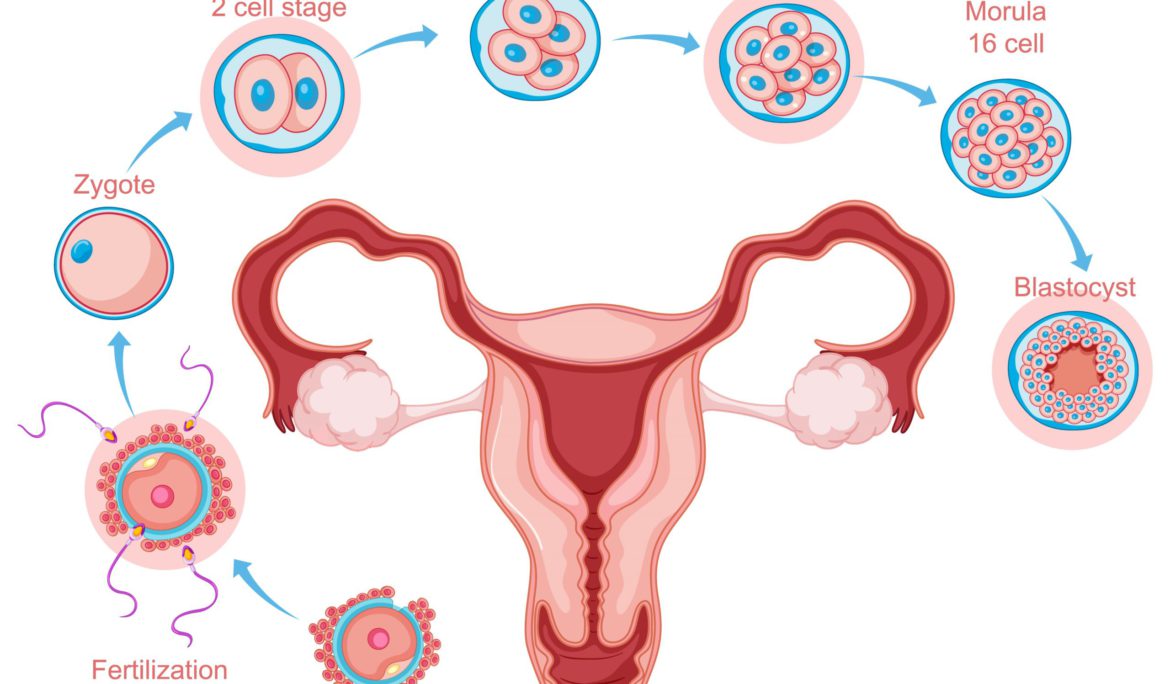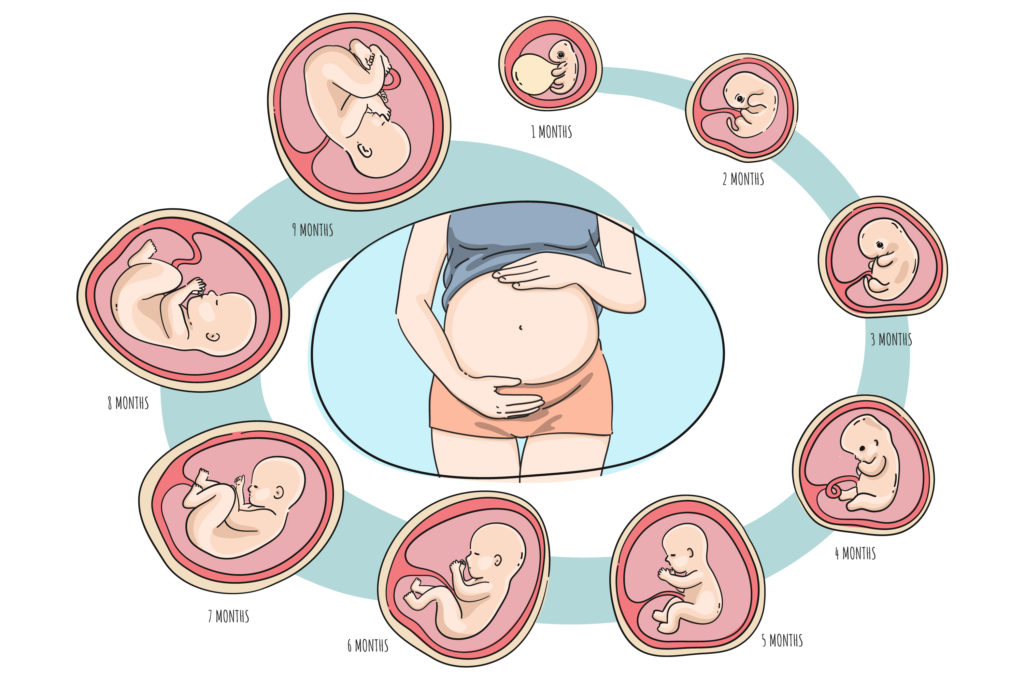Maximizing Fertility: Proven Strategies to Get Pregnant Faster


Embarking on the journey to parenthood can be exciting, yet for many couples, it comes with challenges and questions, especially when it comes to fertility. If you’re aiming to conceive quickly, understanding and optimizing your fertility is key. This comprehensive guide explores proven strategies to enhance fertility and increase your chances of getting pregnant faster.
Understanding Fertility
Before diving into fertility-boosting strategies, it’s crucial to understand what fertility means. Fertility is the natural capability to produce offspring. It depends on various factors, including health, lifestyle, and age. Both men and women can take steps to improve their fertility.
Healthy Lifestyle Choices
A healthy lifestyle is foundational for maximizing fertility. This includes:
- Nutritious Diet: A balanced diet rich in vitamins and minerals is vital. Foods high in folic acid, iron, zinc, and omega-3 fatty acids can enhance fertility.
- Regular Exercise: Moderate exercise can boost fertility, but it’s important to avoid extremes. Over-exercising can negatively impact fertility.
- Maintain a Healthy Weight: Being either underweight or overweight can affect hormone production and thus fertility.
- Limit Alcohol and Quit Smoking: Both can decrease fertility in men and women.
Understanding Your Cycle
Knowing your menstrual cycle is paramount:
- Track Your Menstrual Cycle: Regular periods typically indicate regular ovulation, which is crucial for pregnancy.
- Identify Your Fertile Window: This is the time you’re most likely to get pregnant. Ovulation prediction kits can help identify these days.
Medical Check-Up and Supplements
- Preconception Check-Up: A doctor can identify any underlying health issues affecting fertility.
- Fertility Supplements: Supplements like folic acid are not only good for prenatal health but can also improve fertility.
Fertility Treatments
If natural methods don’t work, consider exploring fertility treatments:
- Medications: Fertility drugs can stimulate ovulation.
- Assisted Reproductive Technology (ART): Techniques like IVF (In Vitro Fertilization) can be considered if other methods fail.
Managing Stress
Stress management is often overlooked but is essential:
- Relaxation Techniques: Activities like yoga, meditation, or even regular walks can reduce stress.
- Counseling or Therapy: Sometimes talking to a professional can help manage the emotional aspects of trying to conceive.
For Men: Boosting Male Fertility
Male fertility is equally important:
- Healthy Lifestyle: Similar to women, a healthy lifestyle impacts sperm quality.
- Avoid Heat Exposure: Excessive heat can affect sperm production.
- Regular Health Checks: Regular medical check-ups can help identify issues like low sperm count.


Chances of Pregnancy – When to Seek Help:
If conception does not occur within a year of trying, couples may need to explore potential causes. Various factors, from health conditions to lifestyle choices, can affect fertility. Seeking medical assistance becomes crucial if fertility issues persist.
Treatment Approaches:
For couples seeking assistance, several treatment options are available:
- Fertility Drugs: These drugs, coupled with timed intercourse, have a success rate of 15%, making them a common initial treatment.
- Surgery: Surgical intervention may be considered for conditions such as endometriosis or anatomical defects, with success rates varying based on the specific situation.
- Intrauterine Insemination (IUI): IUI is recommended for unexplained infertility and has higher success rates compared to natural conception.
- In-Vitro Fertilization (IVF): IVF, with success rates approaching 40%, is a highly successful method for addressing infertility, especially in individuals under 40.
- Sperm Injection (ICSI): ICSI is an effective option for men with low sperm count, boasting success rates of at least 50% in fertilizing eggs.
FAQs about Maximizing Fertility and Getting Pregnant Faster
How can I determine my most fertile days?
You can determine your most fertile days by tracking your menstrual cycle and identifying your ovulation period. Ovulation typically occurs about 14 days before your next period. Tools like ovulation predictor kits and monitoring basal body temperature can also help.
Does diet affect fertility?
Yes, diet plays a significant role in fertility. A balanced diet rich in vitamins, minerals, and essential nutrients, like folic acid and omega-3 fatty acids, can enhance fertility in both men and women.
Can exercise impact my ability to get pregnant?
Moderate exercise can positively impact fertility by maintaining a healthy weight and reducing stress. However, excessive or intense exercise might negatively affect fertility, especially in women.
How does stress affect fertility?
High levels of stress can disrupt hormonal balance and menstrual cycles, potentially affecting ovulation and fertility. Stress management techniques like yoga, meditation, or counseling can be beneficial.
Are there any natural supplements that can boost fertility?
Certain supplements, like folic acid, zinc, and vitamin E, can improve fertility. However, it’s important to consult with a healthcare provider before starting any supplements.
How important is it to quit smoking and limit alcohol when trying to conceive?
Quitting smoking and limiting alcohol consumption are crucial for fertility. Both can negatively impact egg and sperm quality, as well as overall reproductive health.
Should men also focus on fertility?
Absolutely. Male fertility factors contribute to around half of all infertility cases. Men should maintain a healthy lifestyle, avoid excessive heat exposure, and have regular health checks to ensure good sperm quality.
When should a couple consider fertility treatments?
Couples should consider fertility treatments if they have been trying to conceive for over a year without success, or earlier if there are known fertility issues or the woman is over 35.
What are common fertility treatments available?
Common fertility treatments include fertility drugs to stimulate ovulation and assisted reproductive technologies like IVF (In Vitro Fertilization), and IUI (Intrauterine Insemination).
When should I consult a healthcare provider?
It’s advisable to consult a healthcare provider before trying to conceive for a preconception check-up, or if you have concerns about your menstrual cycle, fertility, or if you have been trying to conceive for a year without success.
Can I get pregnant if I have sex without penetration?
What factors influence fertility in men and women?
Fertility is influenced by a variety of factors for both men and women, including health status, lifestyle choices, age, and genetic background. For women, ovulation and the health of the reproductive organs are crucial, while for men, sperm quality and quantity are key factors.
How does ovulation relate to my chances of getting pregnant?
Ovulation is the release of an egg from the ovary and is a critical period for conception. Pregnancy is most likely to occur when sexual intercourse happens around the time of ovulation. Knowing your ovulation period can help you time intercourse to increase the chances of conception.
Can lifestyle changes really improve my fertility?
Yes, lifestyle changes can significantly impact fertility. A balanced diet, regular moderate exercise, maintaining a healthy weight, and avoiding harmful substances like alcohol and tobacco can all enhance fertility in both men and women.
How can I track my ovulation to increase the chances of getting pregnant?
You can track ovulation through several methods: monitoring changes in basal body temperature, observing changes in cervical mucus, or using ovulation predictor kits that detect hormone surges preceding ovulation.
What is the fertile window, and how do I calculate mine?
The fertile window is the period during your menstrual cycle when you are most likely to get pregnant, typically the five days leading up to and including the day of ovulation. If you have a regular menstrual cycle, you can calculate your fertile window by noting the length of your cycle and estimating ovulation to occur about 14 days before your next period starts.
Are there any specific foods or supplements that can boost fertility?
Certain nutrients are essential for optimal fertility. For women, folic acid, iron, zinc, and omega-3 fatty acids are beneficial, while men can benefit from antioxidants like vitamins C and E, which improve sperm quality.
What role does stress play in fertility, and how can it be managed?
Stress can negatively affect fertility by disrupting hormonal balance and ovulation. Managing stress through relaxation techniques, such as yoga, meditation, and regular physical activity, can help improve your chances of conceiving.
When should we consider seeking help from a fertility specialist?
It’s recommended to consult a fertility specialist if you have been trying to conceive for over a year without success (or six months if the woman is over 35) or if you have known fertility issues.
What fertility treatments are available for couples struggling to conceive?
Fertility treatments range from medication to stimulate ovulation to assisted reproductive technologies such as IVF (In Vitro Fertilization) and IUI (Intrauterine Insemination), depending on the underlying cause of infertility.
Can excessive exercise affect my fertility?
Yes, while regular, moderate exercise is beneficial, excessive physical activity can negatively impact fertility by causing hormonal imbalances and disrupting menstrual cycles.
How do smoking and alcohol consumption affect fertility?
Both smoking and excessive alcohol consumption can significantly decrease fertility in men and women by affecting sperm and egg quality, respectively. Quitting smoking and limiting alcohol intake are crucial steps when trying to conceive.
Is male fertility just as important as female fertility in the conception process?
Yes, male fertility plays a crucial role in the conception process. Factors such as sperm count, motility, and morphology are essential for fertilizing an egg. Men should also focus on healthy lifestyle choices to improve sperm quality.
For further information, please contact our expert team.



